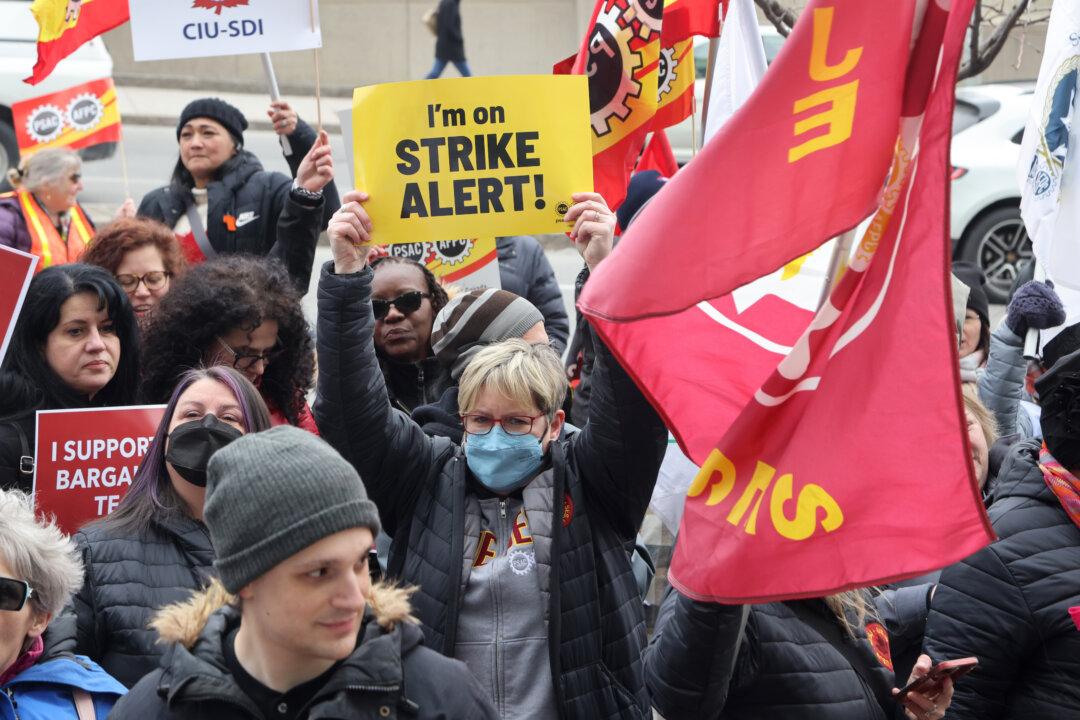The Public Service Alliance of Canada (PSAC)—a union that represents more than 120,000 federal public servants across the country—has voted in favour of a strike mandate.
“PSAC members are feeling squeezed along with everyone else. Our members have been without a contract since 2021. And today, an overwhelming majority of our members have told us they can’t wait any longer and they are prepared to strike to secure a fair deal that won’t see them fall behind,” PSAC President Chris Aylward said during a press conference on April 12.





